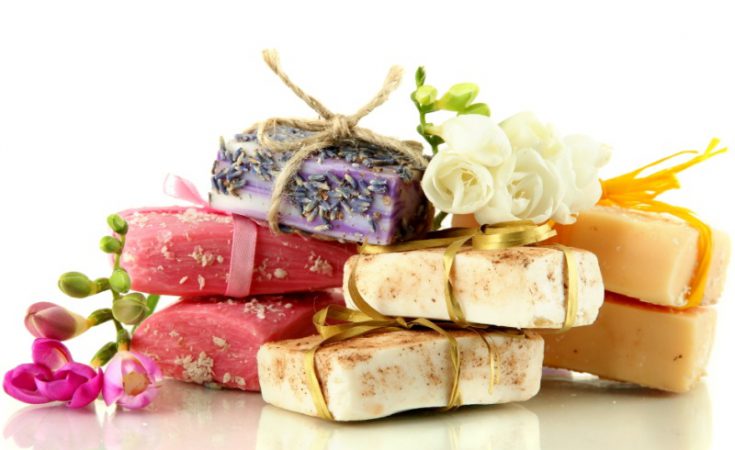Natural soap cleanses skin and conditions it. It’s composed of fats – most frequently it’s vegetable fat mixed with sodium hydroxide and water. The truth is, the great majority of soaps sold are just washing bars, in other words – synthetic detergents, which contain maximally 10% of natural soap. How to tell natural soap from syndet and what are its types?
How to recognize natural soap?
Natural soap has a different composition than a synthetic. It contains:
- fat (either vegetable or animal),
- sodium hydroxide,
- water,
- laurel oil,
- oil,
- shea butter.
To sum up, natural soap contains maximally 5 ingredients and sometimes some extras in the form of essential oils and natural colourants. On the other hand, synthetic soap contains no more than 10% of natural soap; the remaining ingredients are synthetic detergents, saturated fatty acids, fragrances, colourants and preservatives. Although they lather well and remove dirt, they are irritating and disturb skin pH. As a consequence, this leads to excessive skin exfoliation. In order to prevent this, synthetic soaps are enriched with emollients, which are supposed to fix damages of lipid coat of skin.
Natural soaps – types
Generally, natural soaps can be divided into potassic or sodic. Potassic soap doesn’t contain synthetic colourants nor fragrances. Also, they are soft and easily dissolved in water.
- Household soap (soft soap)
is recommended for using with skin allergies due to being hypoallergenic. Household soap is very good at washing and cleansing skin. Owning to its antibacterial features, it helps with fighting against acne. Also, you can use it to wash your hair with and even clothes. - Castile soap
is produced form natural vegetable oils. It’s composed of olive oil thanks to which it’s recognized as an exceptionally delicate detergent. Its lather effectively cleanses and moisturises skin. Castile soap can be freely used by kids and allergy sufferers. - Marseille soap (Savon de Marseille)
is famous for its beautiful lavender smell. It’s recommended for every skin type. Marseille soap effectively cleanses skin, conditions it and replenishes with water. It’s also suitable for keeping intimate area clean. Flakes of Marseille soap are used for laundering even baby clothes. - Sulphur soap
works dehydrating, disturbs natural protective layer of epidermis and, if used regularly, it limits sebum production. Although it cleanses skin really well, it has to be used pro tem due to its invasive action. Sulphur soap can be used to treat oily and acne skin as well as hair that is affected by dandruff and seborrhea. - Peloid soap
makes skin slightly acidic and restores its natural pH. Moreover, it facilitates restoration of hydro-lipid skin coat and improves condition of dry and cracked skin.
